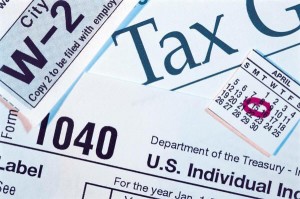The mortgage interest tax deduction is considered to be one of the most equitable Bush-era tax breaks since virtually all American borrowers and taxpayers can take advantage of it.
 The mortgage interest tax deduction is considered to be one of the most equitable Bush-era tax breaks since virtually all American borrowers and taxpayers can take advantage of it. Now that the fiscal cliff deliberations are moving into the negotiating stage in Washington, real estate analysts are worried that the mortgage interest tax deduction may disappear and thus erase a considerable amount of the recovery experienced by the housing market in 2012.
The mortgage interest tax deduction is considered to be one of the most equitable Bush-era tax breaks since virtually all American borrowers and taxpayers can take advantage of it. Now that the fiscal cliff deliberations are moving into the negotiating stage in Washington, real estate analysts are worried that the mortgage interest tax deduction may disappear and thus erase a considerable amount of the recovery experienced by the housing market in 2012.
The fiscal cliff consists of the expiration of several tax breaks enacted during the George W. Bush administration and supported by President Barack Obama, at least when he took office in the midst of the Great Recession. With troubling budget deficit levels and national debt at an all-time high, allowing some tax breaks to expire will bring much-needed revenue to the government's coffers.
A major issue with the fiscal cliff is the drastic impact it could have on the economy, particularly with popular items like the mortgage interest tax deduction, but not according to a recent tax planning article by Greogry Korte of CNBC. As egalitarian and populist as the mortgage interest tax deduction may seem, those who claim it on their tax returns are only about 25 percent of homeowners.
A Not So Populist Tax Deduction
At first sight, the mortgage tax deduction seems like a great burden of unrealized income for the government: $108 billion going uncollected each year. The reality is that not all American taxpayers can itemize deductions on their tax returns. Most take the standard deduction because they don't really earn enough income to justify doing otherwise.
Data from the Internal Revenue Service indicates that in regions of the U.S. like Maryland, the mortgage interest tax deduction is claimed by 37 percents of taxpayers living in that state. In other parts of the country where the earning power is significantly lower, like North Dakota and West Virginia, only 15 percent of homeowners are able to claim this deduction.
More than 50 percent of those taxpayers claiming the mortgage interest tax deduction live in households with annual incomes greater than $100,000. This means that the middle and upper classes in the United States stand to benefit from this deduction the most. Homeowners who lost their homes to foreclosure in the past few years were probably not likely to take advantage of this tax break.
An Incentive for Homeownership
Even if the mortgage interest tax deduction is not as significant as once thought, its effect on the housing market is undeniable. Real estate and mortgage brokers often rely on this tax break as one of the most financially important of the homeownership continuum. Should this deduction fall victim to the fiscal cliff, the housing market would certainly suffer -at least initially.



